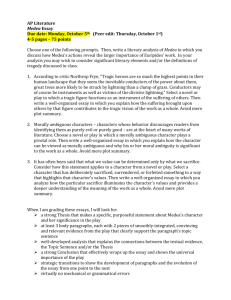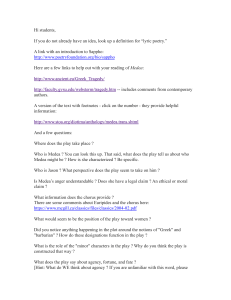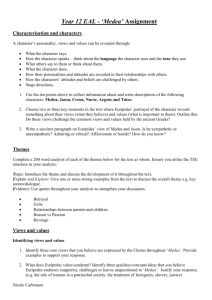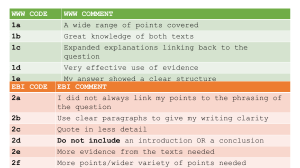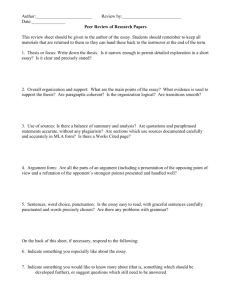MEDEA ANALYSIS ESSAY
advertisement
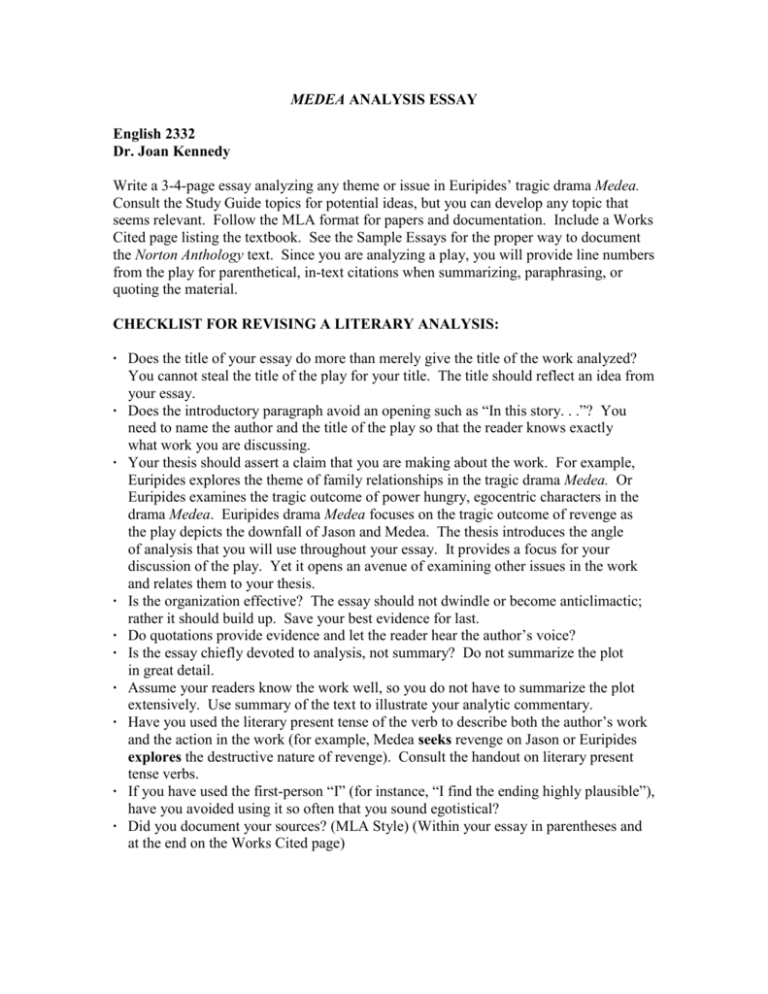
MEDEA ANALYSIS ESSAY English 2332 Dr. Joan Kennedy Write a 3-4-page essay analyzing any theme or issue in Euripides’ tragic drama Medea. Consult the Study Guide topics for potential ideas, but you can develop any topic that seems relevant. Follow the MLA format for papers and documentation. Include a Works Cited page listing the textbook. See the Sample Essays for the proper way to document the Norton Anthology text. Since you are analyzing a play, you will provide line numbers from the play for parenthetical, in-text citations when summarizing, paraphrasing, or quoting the material. CHECKLIST FOR REVISING A LITERARY ANALYSIS: ∙ Does the title of your essay do more than merely give the title of the work analyzed? You cannot steal the title of the play for your title. The title should reflect an idea from your essay. ∙ Does the introductory paragraph avoid an opening such as “In this story. . .”? You need to name the author and the title of the play so that the reader knows exactly what work you are discussing. ∙ Your thesis should assert a claim that you are making about the work. For example, Euripides explores the theme of family relationships in the tragic drama Medea. Or Euripides examines the tragic outcome of power hungry, egocentric characters in the drama Medea. Euripides drama Medea focuses on the tragic outcome of revenge as the play depicts the downfall of Jason and Medea. The thesis introduces the angle of analysis that you will use throughout your essay. It provides a focus for your discussion of the play. Yet it opens an avenue of examining other issues in the work and relates them to your thesis. ∙ Is the organization effective? The essay should not dwindle or become anticlimactic; rather it should build up. Save your best evidence for last. ∙ Do quotations provide evidence and let the reader hear the author’s voice? ∙ Is the essay chiefly devoted to analysis, not summary? Do not summarize the plot in great detail. ∙ Assume your readers know the work well, so you do not have to summarize the plot extensively. Use summary of the text to illustrate your analytic commentary. ∙ Have you used the literary present tense of the verb to describe both the author’s work and the action in the work (for example, Medea seeks revenge on Jason or Euripides explores the destructive nature of revenge). Consult the handout on literary present tense verbs. ∙ If you have used the first-person “I” (for instance, “I find the ending highly plausible”), have you avoided using it so often that you sound egotistical? ∙ Did you document your sources? (MLA Style) (Within your essay in parentheses and at the end on the Works Cited page)
